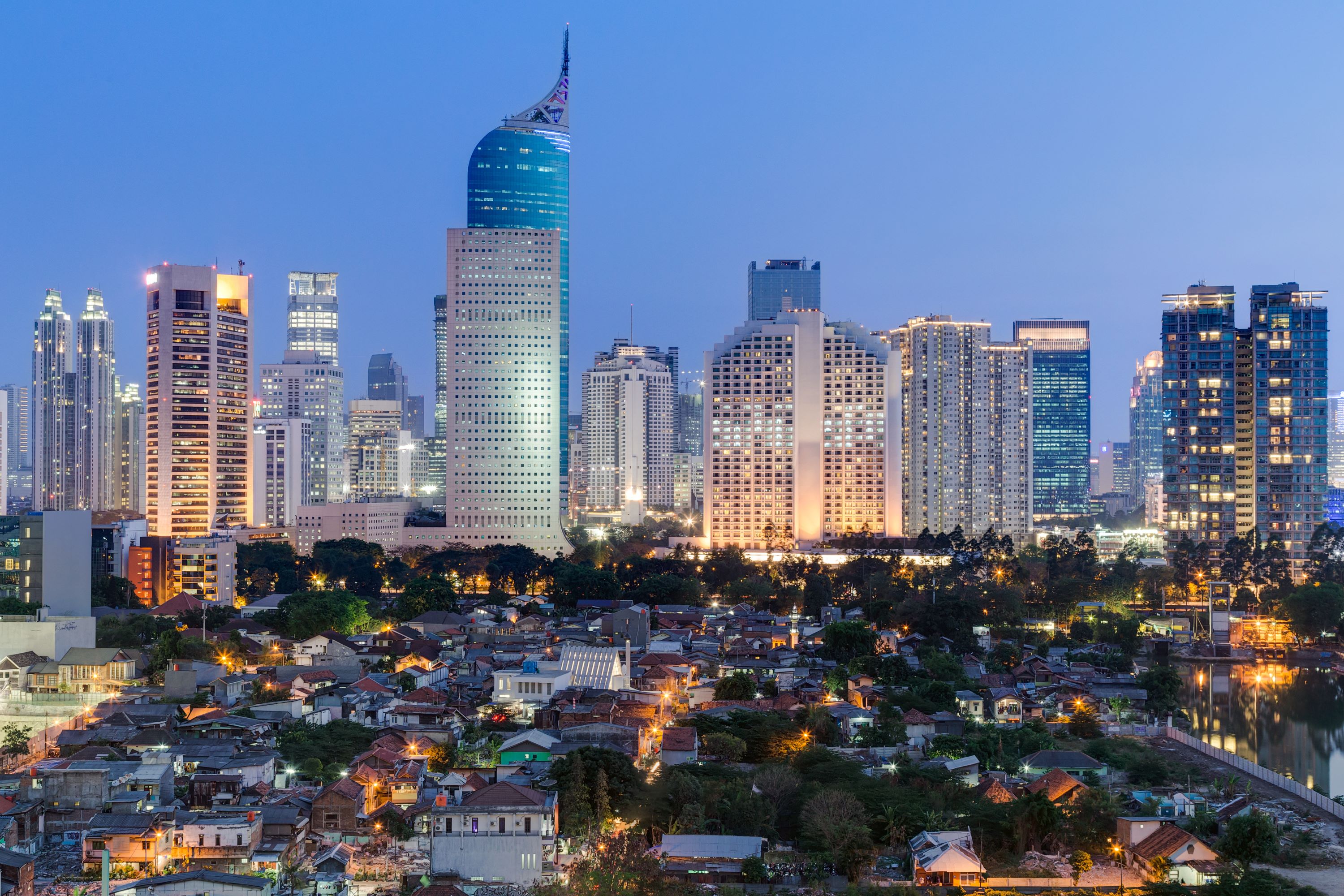
After last week saw Pakistan go to the polls, Indonesia will this week take its turn, as Wednesday (14 February) will see millions at the ballot box. A major year for democracies worldwide continues as the world’s third largest elects a new president and vice president, as well as parliamentary and local officials. It does so under a cloud of misconduct allegations, with reports circulating of political interference.
The IOE&IT Daily Update looks at the latest election news and Indonesia’s broader trade profile, including how it’s responding to questions around the climate impact of its economy.
The election
With 204 million of Indonesia’s 270 million citizens registered to vote and the day itself a national holiday, turnout is generally impressive, reaching 81% in 2019.
However, this year’s election has fallen under a cloud of alleged political interference, with claims that outgoing president Joko “Jokowi” Widodo has been campaigning on behalf of another candidate.
Departing after serving the maximum two terms in office, Widodo’s popular decade-long rule has been marked by infrastructure building and investment-sourcing, raising Indonesia’s economic profile and winning him admirers at home and abroad.
In recent weeks, however, he’s been accused of supporting controversial candidate and current defence minister Prabowo Subianto, a former military general suspected of committing human rights abuses in the late 1990s in now-independent states East Timor and Papua, as well as against pro-democracy activists at home.
Village officials allege they’ve been pressured to support Prabowo in exchange for resources from the current administration, although this has been firmly denied by Widodo.
Students are planning to protest against what they believe to be interference ahead of the vote.
Candidates
Prabowo is running for right-wing populist party Gerindra, on a continuity platform that aims to continue Jokowi’s ambition to make Indonesia one of the world’s five largest economies by 2045. Running alongside Prabowo is Jokowi’s eldest son, Gibran Rakabuming Raka.
This has tainted the pair’s candidacy with accusations of nepotism, further undermining the election’s democratic credentials given that Jokowi’s brother-in-law approved Raka’s running, as head of the Constitutional Court, despite Raka not meeting the minimum age requirement of 40.
The second pairing is of self-styled “men of the people” Ganjar Pranowo and Mohammad Mahfud Mahmodin. Their policies aim to help citizens through the cost-of-living crisis with promises to raise salaries for public sector workers and increase welfare support.
Finally, former academic Anies Baswedan and his running mate Muhaimin Iskandar are promising to support small businesses and create more jobs, along with an ambitious project to build 40 new cities.
Trade profile
According to data from the Observatory of Economic Complexity (OEC), Indonesia has substantially grown its exports in recent years, from US$83.9bn in 2016 to $248bn in 2021.
Its biggest trading partner is China, who receives $54bn worth of goods, followed distantly by the US at just over $26bn. This reflects a pivot away from Japan, the nation’s largest trading partner 10 years ago, which now comes in at third.
A sizable amount of Indonesia’s trade is in fossil fuels, with coal briquettes, worth $28.4bn, and petroleum gas, worth over $8bn, among its biggest exports.
Another key oil the country sells internationally is palm oil, the vegetable oil that serves as a common ingredient in processed foodstuffs and cosmetics, notably soap, shampoo, cake, chocolate and margarine. Its ability to fulfil the roles of preservative and adhesive gives it such wide-ranging application that it was estimated to be in 50% of packaged consumer products.
In 2021, Indonesia was the world’s largest exporter of palm oil, making $27.3bn from selling overseas, making it the country’s second biggest export.
Other key commodities adding to export figures include sugar, tea and coffee and cocoa.
Green questions
Indonesia’s economic and trade profile has raised climate concerns, with its key commodities linked to polluting energy production and environmental damage.
Its response to this has been mixed, with a proactive approach to green energy production: following COP28, Indonesia’s state energy company Perusahaan Listrik Negara (PLN) announced a series of agreements designed to help shift its energy production away from coal.
These include an agreement with France’s Hydrogen de France to create a hybrid power plant, solar power plants to be developed with Singaporean Sembcorp Utilities and a pre-feasibility study to be completed by Korean Hydro & Nuclear Power for a potential nuclear power plant.
Last year, Indonesia challenged duties imposed on its palm oil exports by the EU – its third largest market for palm oil products – via the WTO. Duties of between 8 and 18% have been in place since 2019 to counter negative effects derived from heavily subsidised industries.



